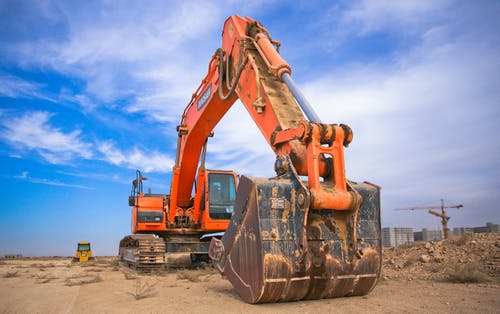No matter what niche of engineering or construction you work in, it is vital that your machinery is running smoothly all year round. One OSHA report revealed that as many as 20 per cent of industrial work-related accidents are the result of equipment malfunctions or machinery operations. Though the safety aspect is enough motivation to keep machinery well-maintained, the monetary and time-related cost that your company will be hit with if a piece of machinery breaks down is something to consider too.
Of course, issues with machinery can happen all year round. Depending on what climate you work in, some companies will incur certain problems on a more regular basis than others. If there’s one thing to be sure of, however, each change of season will bring new complications and concerns.
Let’s take a closer look at what difficulties you can expect to see in each season and find out exactly how you can properly maintain your equipment in every temperature.
Autumn/winter
As the temperature drops, you can expect to experience numerous complications with your equipment and machinery. In terms of machinery and worker health and safety, the coldest seasons are often thought of as the most dangerous time to work in engineering and construction. Even without the concern of broken machinery, you’ve poor weather and less worker-mobility due to extra clothing and padding to contend with.
During periods of extreme cold, materials will contract and they are more susceptible to rust due to heightened levels of moisture. Metals such as iron and steel are in particular danger of rusting during this period. Because of this, equipment must be checked more frequently and kept well lubricated during the colder months.
Here are some key areas to check and maintain:
- Oil: For your machinery to run smoothly, the oil used within the equipment must match the outside temperature. You should also be sure to check your oil viscosity to ensure that you are using the appropriate type for the piece of machinery (if in any doubt, contact your manufacturer). During the colder seasons, it’s advisable to use a low viscosity engine or hydraulic oil so that the oil can flow faster. Be sure to check and change your oil before and after the cold seasons.
- Grease points: When the temperature drops, you’ll encounter increased levels of moisture. This moisture could build up in your machinery and cause some serious damage such as rust. To avoid a dangerous moisture build-up, be sure to properly grease your machinery. Your manufacturer will be able to recommend the appropriate low-temperature lube for this job.
- Coolants: Coolants are essential when it comes to keeping engines running smoothly and it is vital to have the right mix. Ideally, your machinery should be treated with a 50/50 ratio of coolant and water. However, in extremely cold climates, this ratio could be changed to 70/30 coolant to water.
- Batteries: Rust is also a potential problem when it comes to batteries. If you don’t check for rust early enough, your batteries will drain and die sooner than you’d normally expect. During colder months, you should check the batteries on your machines more regularly and verify that the electrolyte levels are filled up as indicated by your manufacturer.
Spring/summer
It’s natural to assume that as the warmer months roll in, your machinery will be running more smoothly. However, there are still plenty of issues that come hand in hand with rising temperatures. As well as the impact that extreme heat can have on machinery, workers are far more likely to neglect heavy health and safety equipment in warmer weather.
Although moisture is a primary concern during autumn and winter, high levels of rainfall and the moisture that comes with it are likely to continue throughout spring. Also, as the heat rises further during summer, equipment is likely to expand slightly and overheat. This could lead to malfunctions and negatively impact your joint integrity.
To avoid any serious issues during the warmer months of the year, be sure to:
- Conduct regular coolant checks: Like in autumn and winter, the temperature can tamper with your coolant ratios. Monitor it regular and make sure that the ratio remains at 50/50.
- Store equipment safely: If your company works with machinery outdoors, and you are able to transport it, be sure to store your equipment somewhere appropriate when it is not in use. This will protect it from the hot sun and any potential moisture damage, rust, and corrosion.
- Conduct machinery checks and maintenance: No matter what weather conditions you’re working with, regular checks and maintenance is a must. Although it might be tempting to avoid regularly forking out money for fixes or a completely new piece of equipment, machine downtime will likely cost you just as much, if not more. The dangers of working with damaged equipment outweigh the costs every time.
It is possible to be safe and profitable all year round, as long as you’re aware of the potential dangers. Although the weather can sometimes take you by surprise, it’s easy to prepare for the changing of the seasons if you know exactly what to watch out for.









